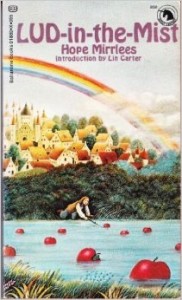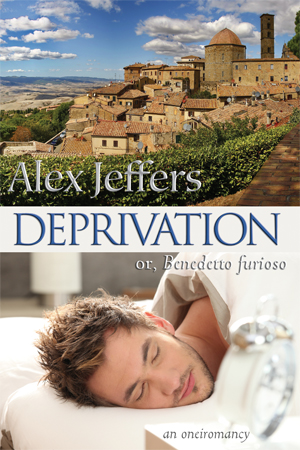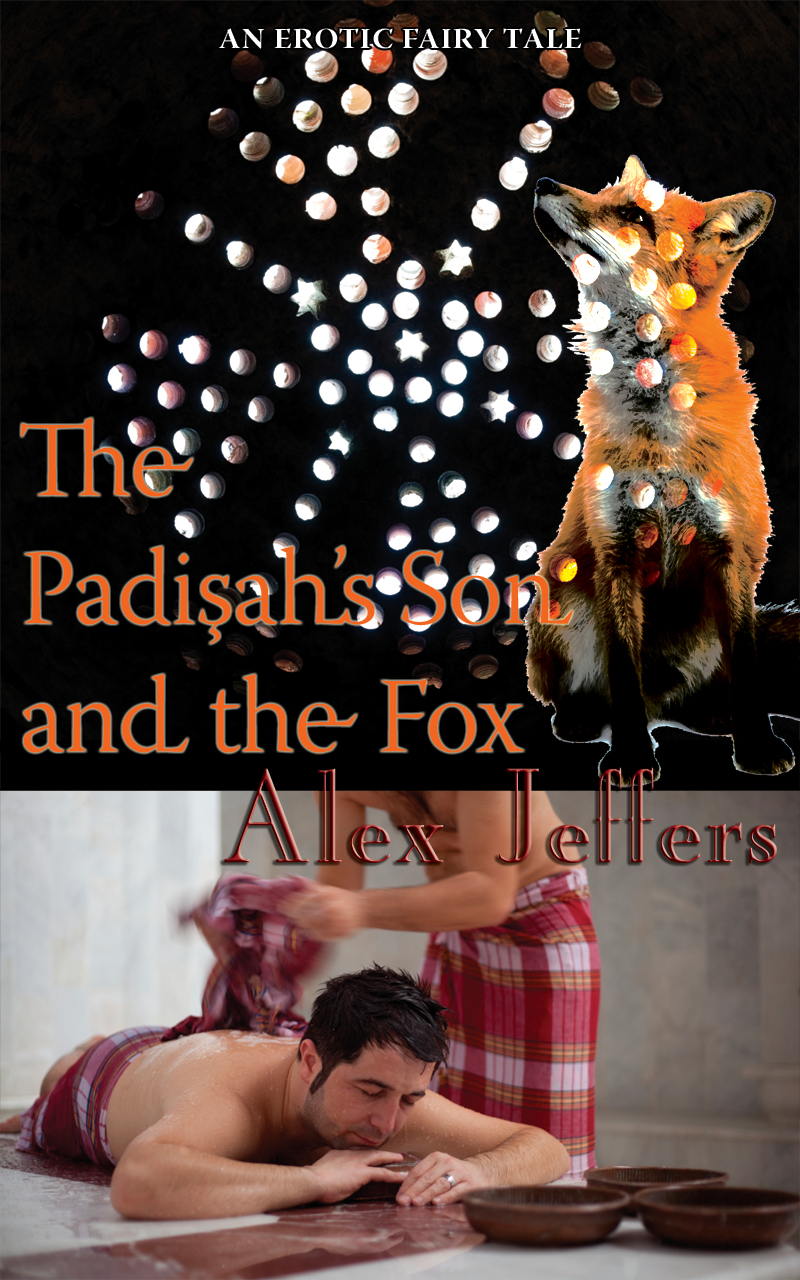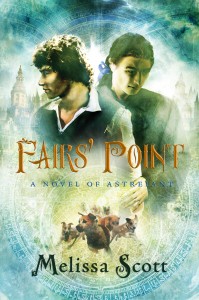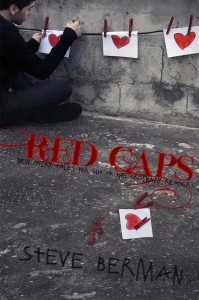First finished story of 2014. So that’s a better start than last year already. Although it’s not precisely new: I had the title nearly four years ago, wrote the first section in early 2011. But, hey, I’ll take it.
“Liam and the Changelings” is the fourth tale of Liam Shea, following “Liam and the Wild Fairy” (first published in Icarus: The Magazine of Gay Speculative Fiction #5, Summer 2010); “Liam and the Ordinary Boy” (Icarus #10, Fall 2011); and “Liam and His Dads” (Icarus #12, Spring 2012). The ultimate plan is for seven total, to make up a small book…or half a book—but it’s probably unwise to count on the timely completion of any of my plans.
Since Icarus, alas, that noble and quixotic time and money sink, fell into the sea and drowned with #18, and since publishers are seldom interested in picking up an orphaned series, well—here ’tis.
Liam and the Changelings
On the internet, the e-mail’s subject line said, nobody knows you’re a fairy.
Liam’s throat made a strangled noise he hadn’t anticipated and he shot up from his chair. The night-blackened window beyond the monitor offered the startled reflection of a boy any number of people on the internet did know was a fairy, but the message wasn’t from any of them. He sat down again.
The name didn’t mean anything to him. Olivia Burgoine. He knew two Olivias at school but neither was a Burgoinybody and both had to know about him. It was old news all over town. On the internet, Facebook kept suggesting Livvy Black because they had his friend Joel in common, a poor excuse for friendship (virtual or otherwise) to Liam’s thinking. Olivia Martin was merely a face from Calculus.
Because he was a coward, Liam didn’t open the e-mail. He quit right out of Mail and stared for a long moment at the desktop wallpaper—because he was sentimental, it was a photo from his dads’ wedding, both grooms tuxed up and handsome with white rosebuds in their lapels, their hair ruffled by the breeze off the wide blue pond behind them. Dad #1, Bryan, no longer winced when he walked in and saw that image of happier days but he wondered aloud why Liam’s wallpaper wasn’t one of the snapshots that also included Bryan and Ricky’s son.
Because Liam wasn’t sentimental about that naïve little kid who looked like a gangly anime-eyed collectible figurine in his own miniature tux, who didn’t understand yet that he wasn’t human.
Because he was a child of the internet age, Liam hit the Safari icon and waited for the browser to open up, then clicked onto Facebook. He had notifications and messages and a friend request but ignored them, typing Olivia Burgoine into the search box. Apparently it was a more uncommon name than Liam Shea (last time he’d checked, there were seventy-two): the dropdown displayed only one possibility.
Indecisive, Liam rolled the mouse pointer over the profile pic. Embiggened, it was still small but he could tell it didn’t show a high-school girl—this Olivia appeared to be his dad’s age, a pleasant-looking blonde. Not one of Dad’s friends, though, or not one Liam had met, or not one Bryan had ever mentioned. If the photo was even really her. Liam’s own pic was a portrait of Dad #2’s dog, a handsome animal he hadn’t seen for five years and who hadn’t liked him when they lived in the same house. Rufus was a pedigreed Irish terrier. The Irish knew all about fairies.
Although Dad #1, Bryan Shea, was of Irish descent and there was an awful lot he didn’t know.
Liam’s forefinger pressed the mouse button. The page on the screen hesitated, then cleared and rebuilt itself. Olivia Burgoine’s profile was as locked down as Liam’s own. Olivia only shares some information publicly. If you know Olivia, send her a friend request or message her.
Six inches from the keyboard, Liam’s phone began to vibrate, jigging on the desk, and rang. It wasn’t this year’s model (Joel mocked it)—Liam had given the few people who voice-called him their own ringtones but you couldn’t change the noise it made to announce texts. New message from Nathan Smith: a name as unprecedented as Olivia Burgoine. Autodial spam?
No
Who’s a good fairy then.
Liam shut the phone off.
Now there were two friend requests on Facebook. On the right side of the window above the ads, thumbnail Olivia Burgoine leered pleasantly. Thumbnail Nathan Smith looked younger than her in a b&w headshot, with an engaging crooked grin and hipster spectacles.
Liam shut the computer down.
He managed not to obsess about the messages the next day. He had other things to worry about. For some reason his extra-sensory fairy perceptions went haywire as soon as Dad #1 dropped him off at school. Fumbling through morning classes, he’d catch fractions of thoughts and feels from teachers and other students but couldn’t assign them to appropriate people. They were all mixed up, mixed together. When he tried to get a grip on somebody’s half-articulated notion, it all shut down as if he’d been dunked in ice water. Or it boomed, loud as bombs, an echoey air strike of disgust and fear and…wanting?
Scurrying down an empty corridor, he slammed right into Joel’s best girlfriend when Livvy materialized out of nowhere, no warning at all. “Hey!” Livvy exclaimed, fending him off, not angry but sounding furious, “we walk with our eyes open here,” which didn’t even make sense, and for half a terrifying second Liam wanted to embrace her, kiss her, climb into her skin. Livvy was beautiful! (She wasn’t: tall as a crane and nearly as skinny as Liam, her forehead and button nose festering with acne.) Liam pushed off her and staggered, grunted a lame “Sorry!” and loped away.
He banged into the first boys’ room he saw. Thankfully it was empty. Rushing into a cubicle, he slammed the door behind him, shoved the toilet seat up. He wasn’t convinced he needed to pee but part of the dissociative weirdness had migrated into his boxer shorts. When he fished out his dick, it went stiff.
Liam knew about hard-ons. They had nothing to do with him because his penis had never been anything but an outlet for waste but he knew human boys felt otherwise. Massachusetts wasn’t one of those states that mandated euphemisms and misdirection instead of sex ed so he understood the hydraulics. The human hydraulics, anyway. His untrustworthy sensitivities tended to stab the intensest feelings of other kids into his head—inevitably among teenagers a lot of those had to do with sex, wanting sex, mortification or crowing pride over responding to sexy stimulus. He’d got pretty good at shunting those aside, distracting, meaningless.
When it was him throwing wood it couldn’t be shoved away. It had never happened before. Touching the alien thing (it was bigger, much bigger) pained and thrilled him, scared him to death. What was he supposed to do with it?
He stuffed it back into his pants. It didn’t want to go. Somebody was thinking, really thinking, about things he could do with it, but that wasn’t Liam. Before not-Liam could take over, Liam pulled the cubicle door open.
Mirrors filmed with scum reflected a madman—a mad fairy. His silver and gold eyes were huge, huger than usual, showing only corners of white and the pupils so small they were barely visible: he looked blind but he wasn’t. He could see clearly just how not human he looked. His cheeks and eyelids and forehead had flushed, pale blue-green blood glistening through parchment skin, and the teeth behind thin corpse-blue lips appeared sharper, dangerous. The antennae springing from the inner corners of his eyebrows jiggled with tension. All through his body he felt chancy, too big to fit in skin that seemed to feel rigid, fragile, like overbaked plastic or hard lacquer, as if he could crack it, fracture it, and wriggle out, fresh and new. He felt his wings, tightly packed into his shirt between the shoulder blades, agitating to unfold and open.
Worse was the wanting. He didn’t know what it was he wanted but he wanted it more than anything ever. It thrummed inside him like a violin string stretched taut from breastbone to pelvis, wanting to snap.
He was going to snap.
It was horrible. All kinds of things, human things, injured or distressed him—singed his skin, tortured his lungs, turned his stomach inside out—but he’d never been sick. Was this what illness was like? Did real people, human people, have moments like this? He wanted to rip his face off his skull.
“Liam?” Joel’s voice scraped like a rusty serrated knife, burning and biting, followed by the bang of the door. “Liam? Livvy said— Are you all right?”
“I—” Liam said, hearing his voice veer into the ultrasonic.
“What’s wrong? You look—”
In the grotty mirror, the monstrous image of his friend approached. Gangly, boyishly handsome Joel looked twice as big as life, armor plated like a rhinoceros, shambling like a bear. Liam cringed when a great paw of a hand rose. There was nowhere to flee. He was trapped in the mirror.
“I need—” Now his voice went infrasonic, shaking the floor underfoot, shaking the universe.
But Joel didn’t strike him. Tentative fingers touched his shoulder, light as hummingbirds, hot as pounding blood, searing like cold steel. Quick as lightning, Liam turned and fell against Joel’s chest.
“What? What?”
“I need my—” Liam knew he was clutching too hard. He felt the autonomic protest gathering under Joel’s diaphragm. He knew he’d break his friend’s spine if he didn’t let go. “My dad. I need my dad.”
He was weightless. He was flying.
Not flying. Not weightless, heavy as forged iron. Bent like a paperclip, he hung over Joel’s shoulder, anchored by a sturdy arm behind his knees. Grimy vinyl tiles smacked up against Joel’s heels. Blood pooled behind Liam’s eyes. Before they could pop out, he squeezed them shut. He heard himself whining, too high for dull human ears to perceive.
Then Joel dumped him into a bucket seat. Three-point belts strapped across his chest and hips, pinning him down. He didn’t open his eyes. A door slammed like the end of the world. When Joel thumped into the other seat, rocking the car, he was talking to somebody. Somebody named Bryan.
“Dad,” Liam whined.
Like a lion or a dragon coughing, the engine caught. “Hold on,” said Joel. “I’m taking you home.”
There was nothing to hold on to.
He didn’t remember Joel getting him home. It must have happened but he didn’t remember it. Other things must have happened, too. In his right mind, Liam could have predicted them: his dad’s dismay and fright, Joel yelping incoherent explanations and dancing around to no effect. There must have been frantic calls to Ricky in San Francisco—to Bryan’s friend Prof Garland, his generally useless oracle on fairy biology and the fairy life cycle. Frantic or shocked into steelly competence, Bryan wouldn’t have called his own doctor, but he might have considered for just an instant the nearest ER. An instant. Too much fatal cold steel involved in modern medicine, human drugs meant to be healing that would poison a fairy.
They must have carried him upstairs to his bedroom, Bryan and Joel…or just Bryan if Liam’s dad irrationally blamed everything on hapless Joel. That was plausible. Liam could have imagined that. Although it wouldn’t be Liam unconscious or flailing and gibbering in his dad’s arms on the stairs: some other boy, some human boy, because Liam Shea had never been ill, delirious or comatose: because no fairy belonged in Bryan’s big house in the exurbs of central Massachusetts. No fairy should ever be pent up within human-built walls, exhausted into quiescence on a certified organic-cotton futon in a maple bed frame, wrapped up in a goosedown duvet. That could never happen.
Liam seemed to look down on himself: the fairy youth cocooned in cotton and down, his face emaciated, bones trying to slice through withered skin, jaws gaped in mortal rictus like an insect’s mandibles. He looked down on the fairy’s adoptive father knelt by the bed, clasping one chitinous claw-like hand and babbling in anguish, in horror, in despair. Crying and pleading and praying in nearly convicing imitation of paternal love and care. He seemed to see his best (only, really) friend Joel fluttering vainly about the room like a dazed moth—or lumbering like a crazed gorilla because Joel was big, slapping his hands, hooting, baring his teeth. Liam seemed to see a big, urgent lump in Joel’s jeans—as big as a fairy’s unprecedented erection or bigger—and seemed to see Joel grope it unthinking, stuff his hand down the front of his pants and underpants.
But that was stupid. Nonsense. It could never happen. It was nothing to do with Liam, uncomfortably aware though he was of Joel’s longtime crush. It couldn’t happen and hadn’t happened and wouldn’t happen and he would never remember any of it because he wasn’t even there. He was flying, flying through limitless skies, somewhere…somewhere else.
The overly loud doorbell of Bryan Shea’s house bonged and Liam flitted through a chilly cloud into fairyland. He’d seen those enchanting horizons once, years ago, a fleeting glimpse through a closing door, breathed the thrilling air—rejected all the feral promises in favor of his dad and a domestic life in the real world. But now air that was realer than real filled his lungs like cold water and he embraced it. His wings as rigid as blood could make them, he soared above the twilit lands. Eyes as keen as an owl’s took in everything: everything.
Across the indigo plain below wound the black river mightier than the Amazon, curdled currents glinting crimson in starlight. Untracked forest clothed the land. Liam smelled the fragrances of its fruits and flowers—smelled the blood and breath of its creeping, climbing, fluttering, burrowing inhabitants, creatures whose blood and flesh would nourish him as he had never been nourished. But he wasn’t hungry. Not for food.
Soaring higher, he saw the distant black-glass city, shards and needles spiking up from the marshes where river encountered sea. Like fireflies, prismatic sparks traced crazy paths among the myriad towers. He knew what they were: other fairies, like himself.
Not like him. They were native, endemic. They knew who they were, what they were. What they wanted.
He folded his wings down his back and fell. Wind shrieked past his ears as he plummetted, but the land below, the forest and river and round hills, withdrew from him, ever farther. A tremor in the air caught one outstretched palm and he was tumbling, flailing, still falling. Sickening, forested landscape and starry sky whirled, exchanged places too quickly to make sense of. He felt wayward limbs slap each other and his trunk, bruising. The turbulent air of fairyland was being beaten out his lungs. Any instant he would crash into trees or burst through the dome of the sky.
Somebody caught him. The blow of an arm under his belly arresting the fall made his head spiral off a thousand miles. When he returned to himself after a thousand years’ wandering, he discovered arms like taut leather bands binding him chest to chest against his unsought rescuer. They might be rising. Just beyond his nose, his chin digging into the hollow between the other’s clavicle and trapezius, the fairy’s visible wing beat the air to froth, vibrating as fast as a hummingbird’s, too fast for human eyes to see. Liam wasn’t human but he needed to breathe and the need drew an ultrasonic whine from his desperate lungs.
Chest to chest—hips to hips. Dick to dick. His was hard and so was the other fairy’s, stiff as cold iron but not cold. Not hot like a crippling burn, but hotter than fairy or human flesh. Whining, Liam ground his roaring need against the other’s, pressed together between their bellies. He had no idea—all recollection of sex ed and the illustrations in Straight Talk with Your Kids about Sex and The Joy of Gay Sex he’d leafed through in his dad’s private office, appalled—all the acts Joel imagined and yearned for and leaked out in Liam’s presence—the things Liam’s dads did late at night during Ricky’s biannual visits that Liam couldn’t help but know all about even though he was supposed to be asleep and everybody in the house disapproved—all of it gone of out of his head. Into his dick.
The other fairy pushed him away. Balked, Liam roared as he fell into his pillows. He heard a thump and a grunt as the other, not a fairy, encountered the hardwood floor.
“Liam, what the hell—”
Liam had an instant to trust his dad hadn’t actually been hard, and an unclear, desperate moment of wishing Bryan had been, before he was gone again, fleeting toward glistering pulsars and quasars he would never reach.
When he roused next, a tumbler of out-of-season blood-orange juice stood on the shelf in the headboard of his bed. He smelled it before he knew who he was and went up on his knuckles like a chimpanzee, lowering his face over the yawning glass mouth. His tongue wasn’t long enough to more than dabble at intensely sweet-sour surface tension.
“Liam!”
Liam rocketed back into the wall, bruising wings and shoulders. He sensed the tumbler’s momentary wobble but not the person who’d called his name. That was wrong.
Then a waft of sweat as sour as orange juice hit him, and a sweet smell of meat. “Liam,” Joel began, crossing half the room in a single leap, “are you—” He stopped. “Liam?”
Tensing up inside his skin, Liam wanted, needed to spring, to pounce, but nothing inside his skin was working. He knew his throat and tongue and lips wouldn’t form words Joel would understand. He snarled.
Retreating to the open door, Joel yelled, “Bryan!”
Bryan’s bare feet were already slapping up the stairs. In the crevice between mattress and wall, Liam’s arms and legs clenched and seized, bundled him into an agonizing knot. Outspread, his wings vibrated, buzzing like angry bluebottles against a windowpane.
At the door, Bryan panted out, “Babe?” The scent of his anguish and fear was terrible.
“He’s very far gone,” said an impossible voice, a toneless woman’s voice that smelled of nothing at all.
“Babe, these people say they can help you. I don’t—Liam, I don’t know what to do.”
Another voice, a man’s, said, “You can’t do anything, Mr Shea. He’d rape you or your young friend here, and breed you, and kill you.”
“My son is not a monster!”
“He is now.”
“For the moment,” the woman said, calm as death or annihilation. “He’s a fairy. Listen, Mr Shea.” She paused as if for breath. “We know what to do, Nathan and I. We were raised to do it. It was our only purpose.”
“Until they tired of us,” the man said, just as calm, “and threw us out.”
“They?” squeaked Joel.
“Fairies. Like him, but not like him. In their own country.”
“It’s your choice, Mr Shea, of course,” the woman said. “But know this: Without our intervention, your…son—” she gave the word a peculiar stress—“will die. The maturation will kill him. Half of every fairy get doesn’t survive it.”
“Or their siblings don’t, or their sire.” Despite the tonelessness of his voice, the man seemed to relish his words.
“He still may not make it through. But unless you happen to have another fairy squirrelled away to guide him through it, we’re his only chance.”
“His name is Liam,” Liam’s dad protested.
His name is horror. His names are fear and fury. His name is wanting.
“Liam?”
Liam had never heard his dad sound so helpless. But he didn’t remember much of anything.
“Babe?”
Dad, he wanted to cry, oh, Dad, please. Help me. Don’t let them have me. All he could do was growl.
“He’s hurting, Bryan!” Joel, false friend—pleading. “You said the professor didn’t have any ideas. You’ve got to give him a chance.”
“Leave him with us,” the man said. “Close the door and go somewhere else—far. Distract yourselves. It will sound like it, but we won’t harm him.”
“Not deliberately.”
“—and he will survive to grow and prosper.”
“Or not. As it happens.”
“Go now.”
“Liam?”
The little bit of Bryan’s son that was still Liam wondered if Bryan had come closer, stood bootless by the bed. Dads were meant to solve every problem, make everything better. Dad was meant to know the answer to every question but Bryan could never be that dad. The little bit of Liam wanted his dad’s hug, his dad’s consoling murmur, his dad’s steadfast certainty. The larger part, the fairy, the toxic clouds and raging flames, wanted to throw the man against the wall, batter him, rend him to shreds and gobbets.
“Liam, babe, I— …Do it. Just do it. Save my boy.”
“It might be best,” said the woman, a kind of satisfaction seeping through the bland words, “if the two of you stayed apart, Mr Shea, you and the young man, well apart until it’s over. Of course, I don’t know your relationship.”
Joel squeaked, “What?” and Bryan grunted.
“Now go. Every minute makes the task more chancy.”
“Oh, god,” groaned Liam’s dad. And Liam’s bedroom door slammed shut. And Liam…
…fell back into fairyland. Clumsy as a new-fledged owl, he flopped and tottered through the chilly air, eyes and other senses ranging, seeking, hunting. So hungry. So needy. So desirous.
There. Therethere. Prey. There.
Liam mantled his wings and stooped. Two of them, there, side by side in a clearing among trees bearing ripe fruits like cut jewels and nuts like nuggets of precious unrefined ore—standing close but not touching on a sward of figured velvet embroidered with flowers of gold and silver thread. Lovely wingless creatures, woven figures in a fairy castle’s tapestry, infinitely tearable and fragilely alive, or bloodless sculptures in a fairy’s formal garden, waiting for him. Willing prey but, oh, they’d fight back, they’d struggle so prettily. He hurtled toward them, yelling his hunger.
All along, Liam remained very well aware he remained trapped within the husk of his own withered self, in his own bedroom in his dad’s house, in central Massachusetts. The real world. The sole part of him still alive was his dick.
They manhandled him off the bed, his tormentors. Prepared for the occasion, they had silken nets and cords ready to trap and bind his buzzing wings. Kneeling on the floor either side of him, they straightened his crooked limbs and spine, laid him out spread eagle. Some human shame made him feel he ought to attempt covering his dick but there was no chance of that, they had hold of his useless arms, and it was too big anyway, and he would find it necessary to start tugging if given the opportunity. Instead, one, the man, laid the soft, heavy worm of his own dick across Liam’s palm as he stretched to massage vigor into the upper arm.
It was there. It was interesting. Liam felt its warmth and bulk but his fingers wouldn’t answer to his will, whether or not he knew his will. To caress? Or to tear and rend?
The other arm was in the woman’s kneading hands. “Nathan,” she said when half of time had run out.
“Already? Very well.”
They released him. Seemed to retreat a small distance. In concert and acute disharmony began to chant.
The language wasn’t English. Wasn’t Spanish—after three years’ study, Liam would recognize the phonemes even if the phrases didn’t make sense. Didn’t sound like any language he remembered ever hearing in the backgrounds of TV newscasts or YouTube videos—didn’t sound human, though human larynxes and vocal cords could perform the sounds. Still trapped within his skull and desirous flesh—had they placed a spell on him, his prey? He couldn’t even find the will to open his eyes—Liam knew, knew, it was the language he’d heard before memory, before he was dumped into his unprepared dads’ laps, who believed they were getting a human baby. The language of fairyland, his incomprehensible native tongue.
With a little jerk, his wrists lifted off the floor, then his heels. Moments later it was his shoulder blades and the netted-up wings between them, then his ass. It wasn’t antigravity, he wasn’t floating up so much as being raised. The upward pull fought against the resistance of the floor below that wanted him back so that the higher he rose the heavier he felt. It wasn’t at all like flying, when the bulk of his body fought the lift of buzzing wings. It was horrible—as horrible as the moment in the boys’ restroom at school when he discovered his first ever hard-on in his hand.
He could see!
He hadn’t opened his eyes but he could see, but not through his own two eyes. He peered down at the skinny fairy with his big, hard dick, suspended juddering half a yard above the hardwood floor. He felt the air vibrating through his voice box and the soprano voice echoing in his chest and head, heard the discordant baritone in his ears, and slowly lifted the eyes he looked through.
Standing on the other side of the fairy—himself! Liam!—the man couldn’t be anyone but the unwelcome text-messager. Nathan Smith. He wore the hipster spectacles he’d had in the b&w Facebook profile pic, the stubbly hipster beard—it was ginger, redder than the stubble on his scalp—but not the crooked grin and not any clothes. He appeared to be tall, stupidly tall, wiry and strong. Well hung, although it wasn’t hanging. Liam imagined Joel would find him sexy. Liam didn’t know what sexy meant.
If that was Nathan Smith, this must be Olivia Burgoine. In abrupt confirmation, now Liam gazed down from Nathan Smith’s height, his eyes, through the shivery sharp-eyed distortion of his spectacle lenses. Olivia Burgoine wore no clothes either. Loose, heavy blonde hair tumbled around her shoulders. Her face was mature and…pretty? What did pretty mean to people who found women attractive? She had tits—straight men and lesbians liked tits—hips, curves, substance, and it all seemed to be holding up well, as if she exercised and ate wisely and cared for herself, though there was no doubting she was Liam’s dad’s age or older.
Olivia Burgoine and Nathan Smith ceased chanting. To the echoes of an inaudible clang, Liam found himself back behind his closed eyelids. And the two humans, woman and man, touched his fairy body.
On the spangled turf of the fairy glade, Liam made love to them as if he knew what he was doing, why he was doing it, turn and turn again, regretfully neglecting one for the moments required to tend to the other, then turning back. Both were curiously passive but he was not. Lips, tongues, temples, earlobes. Shoulders, armpits, elbows. Fingertips and palms. The man’s muscular chest with its small upstanding nipples and prickly furze of ginger hair contrasted intriguingly with the bulky, resilient weight of the woman’s breasts, her nipples larger and seemingly more sensitive. If he could judge from the sighs and tremors when he nuzzled them.
Nathan Smith groaned feelingly, trembled, when Liam pointed his tongue into the man’s bitter asshole. Liam tasted his soul, the fury banked but raging within him like a furnace, like the molten core of the world or the surface of the sun.
Olivia Burgoine hissed like a fumarole when, in turn, Liam’s tongue striped the skin between her own asshole and twat, his nose excavating that fragrant fleshy crevice. When his tongue kissed its lips and he tasted the unfamiliar flavors of her depths, she moaned, but the moan was muffled by the man’s mouth on hers, and Liam knew Olivia Burgoine’s anger was deeper and older and fiercer than Nathan Smith’s but checked by resignation. She yelled into Nathan Smith’s mouth when Liam’s tongue found the heated nub the diagram in Straight Talk with Your Kids about Sex labelled clitoris.
But really, if anything was real, it was them making love to him in his own Massachusetts bedroom. Him bound by magic and suspended by magic in midair, watched over by all his everyday furniture and trivial belongings and the unscandalized eyes of two photographic portraits: Dad #2 on one wall, Dad #1 on the opposite.
Olivia Burgoine between his thighs sucked his dick, choking indistinctly when she forced it past her gag reflex into her warm throat. At the other end, his own mouth gaped wide to take in Nathan Smith’s cock. It felt right to have it there, bulky and hot and flavorful, demanding, though his jaws ached and his gorge wanted to rise.
But Liam wasn’t entirely in his own flesh. He knew they were making a lot of noise, the three of them, psychic if not audible. And he knew, knew, his silly, still half-infatuated friend Joel, banished strictly to Bryan’s weight room, heard that noise, felt it. Joel dropped the idle dumbbell with a wicked thump and looked around wildly, blindly. Behind his eyes the old movie started playing. The Liam of his dreams was kissing him. The Liam of his dreams groped him through his nylon shorts and cotton briefs. The Liam of his dreams who was hardly a third Liam Shea, two thirds the more recent of the two boys Joel actually had fumbled at sex with, pulled them down and went to town.
Now, straddling Liam’s suspended hips, Olivia Burgoine was fucking herself with his dick. What Nathan Smith was doing Liam couldn’t quite work out.
Because he was in his dad’s head now, in Bryan’s bedroom, in Bryan’s bed, where Bryan offered himself up to a rampant figure that alternated being his ex, Liam’s dad #2, and any number of handsome gentlemen glimpsed and savored at random in the supermarket or the bank, at the tire shop, on a walk through the park. Whoever he was at any moment mattered little at all for he screwed Bryan more expertly, more callously and exquisitely, than any man before. There was no room in Bryan’s mind for anything but abjection, surrender, tremulous joy. He made Liam wish to be fucked himself.
Nathan Smith obliged.
Unless it was Olivia Burgoine wielding a magical strap-on dildo. Liam couldn’t tell.
He couldn’t tell.
He didn’t want to.
He wrapped his fingers around the throat of the person kissing his lips and surrendered. It took forever.
“Naturally it was Nathan,” the woman said. “He always wanted it more than I did.” The bitterness in her voice was flattened, weary. Liam was no longer clear what all they’d done but felt fairly certain she’d been brought off more times than he or Nathan Smith, if not both added up. He half remembered her supine, shuddering, cackling and grunting in transports for many minutes alone while he screwed Nathan Smith the second or third time.
“You’ll need to do something about him, you know,” she said.
“What?” asked Liam. He felt he probably ought to be spooning her, touching her at least, but he lay on his side on the hardwood floor facing away, half focussed on the dusty fringe of the Persian prayer rug under his desk chair. “Who are you?”
Quite calm, she said, “Excess Irish-American babbies snatched away by fairies before baptism. Not that baptism’s any proof against it. A childish fairy tale, that. Nathan from South Boston about eighty years after me, from Brooklyn. We worked it out—the internet is a marvellous tool. According to folkloric norms you’re the changeling but that’s what we liked to call ourselves. We were changed, when we were snatched and again when they threw us out. You needn’t worry, nobody will come looking for him. In this world we’ve always lived off the grid, under the radar.”
A chill touched Liam’s naked back, running up his spine to make his bound wings rustle. “What—what are you saying?”
“Nathan,” she said. “Is dead. You killed him. It was what he wanted. Nevertheless and all question of morality aside, you need to do something about the body. Relatively soon, I’d say, before your…father or your friend recover from their stupors and come looking.”
“I….” Cringing, Liam pulled his shoulders forward, tucked his head in. “I’m tired.” Without thinking, he tucked one hand between his legs, where his dick had resumed its former unresponsive, negligible state. “I killed him?”
“You. Or the pleasure—it’s an age since his last fairy. Or your pleasure.”
It wasn’t pleasure, Liam thought to say. It wasn’t pleasant.
“Or you. If ordinary people find him, if the police get involved, it’ll be you. They’re your finger marks on his throat.” She paused. “I’ll be long gone, of course, untraceable, as I have to be.” She paused again. “Liam Shea,” she said, her tone attesting it wasn’t his true name. “Get up. Turn around. You’re obliged to my friend. You’re obliged to treat his death and his remains honorably.”
Wanting to curl up into a ball and sleep, Liam attempted to dismiss the word. Honor was an outmoded concept, meaningless. “Why did this happen?” he asked, miserable.
Olivia Burgoine remained silent a moment. “It’s your biology, I suppose you’d call it,” she said eventually, more kindly. “As I told that man. Maturity, sexual maturity—in fairies it comes on fast and violent, like a freight train of desire. You would surely have died without us to ride you through it. Probably you would have…damaged anybody who happened to be around before you managed to burn yourself out. But as I said, that’s why we were stolen. Sex slaves is what we were. Treated well for the most part, pampered, indulged, but slaves in essence. Why fairies find us, human men and women, desirable—well, I have theories. And vice-versa. Liam Shea. Get up.”
“Why did he have to—why did he want to die?”
She sighed, a sound of such resignation Liam felt tears start in his eyes. “Death…is our ticket home. Alive we can never return but they have no objection to corpses. Fertilizer, I suppose.”
Liam rolled onto his back. The floor was cool under his spine. He wasn’t going to look at the corpse. If there was one. If she wasn’t lying. Maybe he’d imagined Nathan Smith. He didn’t think so but maybe. Beads of warm fluid grew fuller in the corners of his eyes.
“Liam Shea. Time is short.”
“How can I—? I’ve never been there.” He knuckled one eyelid. “I saw the door once but it’s not there anymore and I couldn’t carry him that far anyway. Do you want to die?”
“Of course. For thirty-odd years. But not enough, it seems.”
Liam sat up before opening his eyes, trusting to proprioception. He saw Olivia Burgoine first. Nude, she sat leaning against the frame of his bed, knees up and wide. For a long moment he gazed at the temptation between her thighs. He wanted it again, to lick and lap and finger and fuck, but not urgently. His eyes lingered another moment on her creased belly and the breasts above like succulent pears, and then her face. She looked hard, old and young at once, her green eyes bleak. “When I manage it finally,” she said, “if you happen to be nearby, I’ll thank you to take my body back as well.”
“How?” he asked simply, despairing. “The door—”
“Opens wherever you wish it to open. You’re a fairy.” She turned her head and her lips twisted. “The cantrip’s simple enough. A child could do it.” She looked back. “A fairy child. Fairies’ slaves, not so much. I’ll teach you.” Regarding him steadily, she spoke thirteen syllables of the fairy language, spiky phonemes that burned into the auditory centers of Liam’s brain.
When he opened his mouth dumbly to repeat them, she raised a hand, looking alarmed and hungry. “No. No, please. Not till I’ve gone. I couldn’t bear it.” This was a different woman. Clumsy and stiff, she scrambled to her feet. “I must leave. I must leave.”
While Olivia Burgoine scrabbled like an ancient crone among heaps of unfamiliar discarded clothing, Liam turned his eyes at last toward the absence he’d been aware of all along.
Nathan Smith—Nathan Smith’s body—lay outstretched, his head so near the door Olivia Burgoine wouldn’t be able to open it to leave. Liam went up on his knees. The body—Nathan Smith—was beautiful in the way of a long-abandoned ruin. Liam moved closer. Behind the spectacles he’d retained through all their exertions, Nathan Smith’s eyes were shut. His lips had relaxed into a quirk of a smile, teeth just showing. He looked happy, so happy. The livid marks of a fairy’s fingers marred his long throat.
“Liam Shea.” Olivia Burgoine’s voice was jittery. Liam felt the effort she put into not flying into splinters. “I must go.”
Captivated by Nathan Smith’s beauty, Liam didn’t look up. “My dad— Can you get away?”
“Listen. They’re asleep, he and the boy.”
Liam listened: it was true.
“I have a little time. You have a little time, for your task. But I must leave.”
Understanding, Liam nodded. He reached to grasp Nathan Smith’s ankles. The skin was cool, papery somehow, dead—tendons and muscles and bones stiff and fragile. As he dragged the nearly weightless body a foot, two feet, the woman stepped around them to the door.
“You’ll do what I asked? What he wanted?”
Liam caressed one of Nathan Smith’s unresponsive shins, fingertips ruffling through ginger fur along the straight line of the bone.
“Yes. Of course. If the…cantrip works for me.”
“It will.” Her hand touched the doorknob.
“Will I see you again? I—you know more about who I am than I do.”
She pulled the door half open. “Accept my Facebook friend request, Liam Shea,” she said. “We’ll chat.”
The door closed.
The door opened.
Kneeling, Nathan Smith’s cold body in his arms, Liam had spoken the fairy cantrip. Without any real conviction at first, but the syllables rose through his throat like bubbles of molten silver and by the last his voice was loud, ringing. The granite doorsill appeared first, incongruous set into the tongue-and-groove oak floorboards of Liam’s bedroom, then the frame, posts growing up like branchless, barkless saplings from the two squared holes, then the scrolled silver hardware—finally the planks of the door itself, planed from a grainy pale wood. And without a touch to the silver latch, the door began to open. Liam smelled the air of fairyland.
His blood quickening, he twisted to kiss Nathan Smith’s cool brow. Spectacle frames scraped his cheek. He regarded the face from too near, handsome features blurring, and twisted farther to kiss cold, smiling lips. Looking down the long, long, pale, pale torso speckled with pinpoint freckles of auburn among the ginger hair, he saw that Nathan Smith’s lovely dick was still hard, or hard again, hard forever, forever unsatisfied. Regretful, Liam grasped the cold, stiff thing in his hand, tugged once, then lifted the body in his arms, rising to his feet.
The door was wide. The verdant slopes of the ancient mountain fell toward the twilit plain, the forests and river and distant black glass city glittering under the stars of fairyland. Liam stepped onto the sill, inhaled. On his back, still netted and bound, his wings struggled to burst free. He wanted—wanted—wished to carry Nathan Smith’s body through the door, to lay it down on the little space of level sward, and then abandon it for eternal flight.
Wanted. Would not.
The body—it was only a man’s, nothing—was awkward to maneuver, but Liam got it up high and tossed Nathan Smith through the door. His head entered fairyland first. Manufactured spectacle frames and lenses flared into brilliant blue flame and vanished without marring Nathan Smith’s smiling, reposeful face. Without a sound, the body thumped down into the grass. As if by design, it landed in an attitude that allowed Liam to admire it for moments, long wiry limbs and slender torso and upstanding prick—its dead human beauty, but not Nathan Smith’s face, turned at last toward the magic places the dead man had wished to call home.
His hand on the doorpost, yearning. Liam heard a shriek in the sky above fairyland and looked up. Winging through the twilight came some great bird. As distant as it was, its wingspan appeared as wide as Nathan Smith’s corpse was tall. An eagle, an owl—a vulture or oversized carrion crow. It shrieked again. Liam stepped back, back onto solid polished oak and the unreality of his father’s house, turned away. The door would close on its own and vanish, he knew. He knew it was unslammable.
Before he’d collected Nathan Smith’s discarded clothing, the door into fairyland was gone, though a faint wild fragrance remained in the still air of Liam’s room. He folded each item carefully: blue jeans, t-shirt and plaid flannel shirt and hoodie, undershorts, socks. He could take them to Goodwill, he supposed, or throw them in the trash. There was no wallet, but he found six ATM-crisp twenty-dollar bills and a handful of coins in one hiking boot, and set the legacy aside without thinking.
Without thinking, he found clothes for himself, dressed. He’d need his dad’s help to untangle the cords and nets from his wings. He heard, felt, their confused rousing from dreams of doomed passion, his dad and his friend in distant rooms, and Liam sat down on the edge of his bed to wait for them to find him again. Well, that’s over, he wouldn’t say, and I survived puberty.
With belated gratitude and appreciation to Friend of Liam ’Nathan Burgoine. (Reader: I killed him.)
Copyright © 2014 Alex Jeffers. All rights reserved. As a courtesy to the author, please do not reproduce this story without a link back to sentenceandparagraph.com.
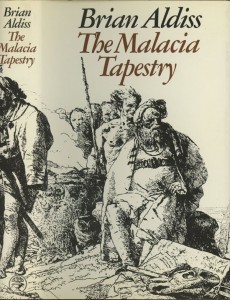
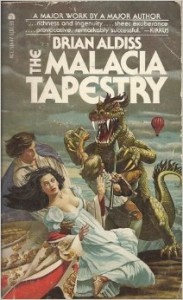 It’s a very odd book and Malacia is a very odd place. Aldiss is not known for the rigor or consistency of his science-fictional or fantastical world building (except perhaps in the Helliconia trilogy, which I now want to reread as well), but even by Aldissian standards Malacia is a nonsense. Which is fine, actually, once you get past expecting something called a Bucintoro to be a Venetian ceremonial galley instead of a gold-paved river wharf, or for Constantinople to be Ottoman in what seems to be a perpetual eighteenth century, not still Byzantine.
It’s a very odd book and Malacia is a very odd place. Aldiss is not known for the rigor or consistency of his science-fictional or fantastical world building (except perhaps in the Helliconia trilogy, which I now want to reread as well), but even by Aldissian standards Malacia is a nonsense. Which is fine, actually, once you get past expecting something called a Bucintoro to be a Venetian ceremonial galley instead of a gold-paved river wharf, or for Constantinople to be Ottoman in what seems to be a perpetual eighteenth century, not still Byzantine.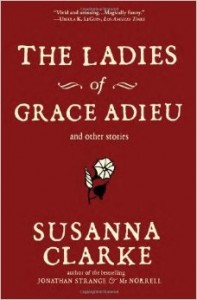 This was a first read—strangely, since I bought the book in 2006, I believe, still under the spell of Clarke’s first book. Or maybe I read a few pages then and realized what my ultimate verdict would be, so set it aside. That verdict is: I don’t feel Clarke writes successful short(ish) stories. Lord knows Jonathan Strange & Mr Norrell is a majestic, terrifying, and nearly perfect novel which I adore without reservation, but many of the techniques that worked to tremendous effect in that monstrous tome fall flat in a shorter piece. Grace Adieu is arch where Jonathan Strange was witty, trivial where the novel was transcendent—it seems always to be patting itself on its back and telling itself how clever it is. (Also, I hate, hate, hate Charles Vess’s illustrations.) Still, Clarke’s vision of Faerie and its inhabitants remains disturbing and beautiful.
This was a first read—strangely, since I bought the book in 2006, I believe, still under the spell of Clarke’s first book. Or maybe I read a few pages then and realized what my ultimate verdict would be, so set it aside. That verdict is: I don’t feel Clarke writes successful short(ish) stories. Lord knows Jonathan Strange & Mr Norrell is a majestic, terrifying, and nearly perfect novel which I adore without reservation, but many of the techniques that worked to tremendous effect in that monstrous tome fall flat in a shorter piece. Grace Adieu is arch where Jonathan Strange was witty, trivial where the novel was transcendent—it seems always to be patting itself on its back and telling itself how clever it is. (Also, I hate, hate, hate Charles Vess’s illustrations.) Still, Clarke’s vision of Faerie and its inhabitants remains disturbing and beautiful.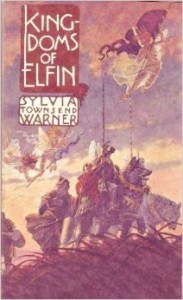 A first read, although I’d been aware of and vaguely interested in the book nearly thirty years by the time I picked up a copy and…didn’t read it. Until now.
A first read, although I’d been aware of and vaguely interested in the book nearly thirty years by the time I picked up a copy and…didn’t read it. Until now.